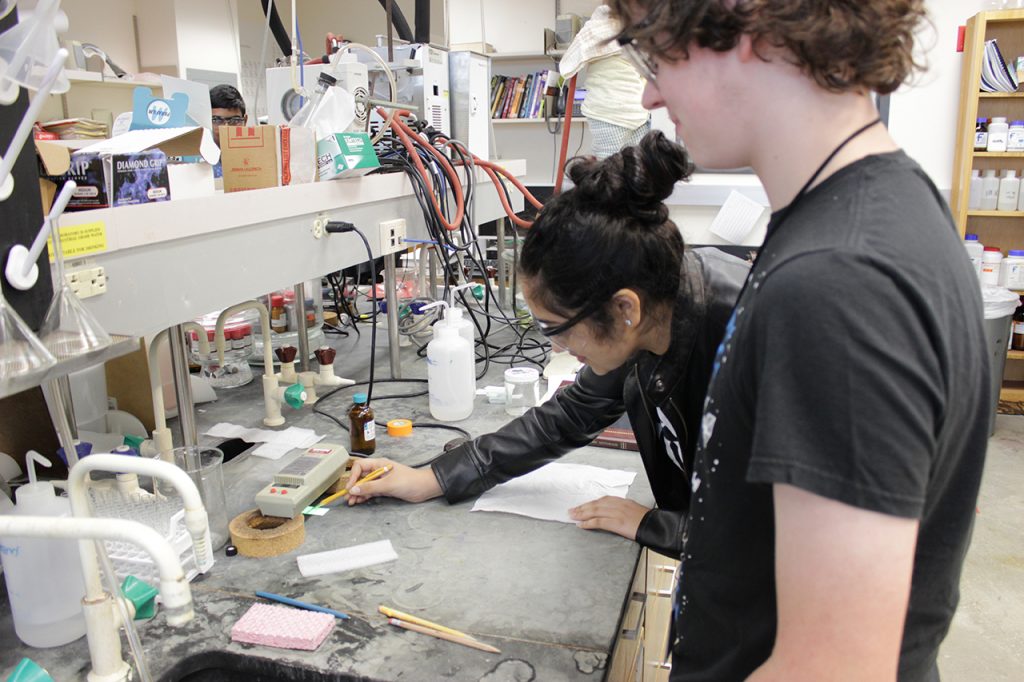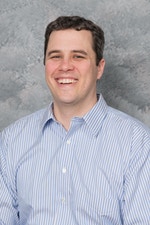Helping chemists fine-tune reactions in the lab has taken on a new importance in these days of COVID-19. Illinois State University’s Andy Mitchell will continue his work providing insights on chemical reactions with a recent $231,000 grant from the National Science Foundation (NSF).
“We’re looking for new reactions and little nuances about current reactions that will assist the broader scientific community,” said Mitchell, an associate professor of organic chemistry.
Organic chemistry is the study of carbon-based molecules that are the basis for all lifeforms, such as plants and animals. Mitchell leads undergraduate and graduate students in “organic synthesis” research, which means using chemical reactions to make organic compounds in the laboratory.

Students Aditi Katwala and Tom McGraw conducted chemistry research in Professor Andrew Mitchell’s laboratory in 2016.
The NSF grant will enable Mitchell and his team to further explore a specific type of reaction known as “cycloadditions” that form rings and build complexity. “A lot of biologically active molecules have rings in them, and cycloadditions allow us to combine two flat things together in an efficient way toward a three-dimensional product,” said Mitchell. This is the second three-year NSF grant for Mitchell’s lab dedicated to examining cycloadditions. “We want to pull back the veil of these reactions and understand them in a deeper way, which could lead to new applications, or expanding the scope of current applications,” he said.
Though chemical reactions can happen in a millisecond, Mitchell noted that chemical research consists of small steps over a long time. “The normal progression of science is very slow and methodical,” he said. “People look to science for quick answers, especially now when we need a vaccine [for the coronavirus] right away, but it is a much longer process than people think.”
Mitchell calls the work of his lab at Illinois State one piece of a vast puzzle working to improve the processes chemists use. “Chemists want simple reactions that are high yielding, made with inexpensive catalysts, and are user friendly,” he said. “We are part of the broader action to make reactions easier for chemists.”
Education is another key component of the grant. Mitchell will employ and mentor students in the lab, and work to develop avenues for student research. “Research, in essence, is a way of preserving a sense of wonder we all have from childhood,” said Mitchell, who added these grants have empowered him to mentor several talented and curious students who have since pursued science as a career. “It’s rekindling that urge to always ask questions.”


